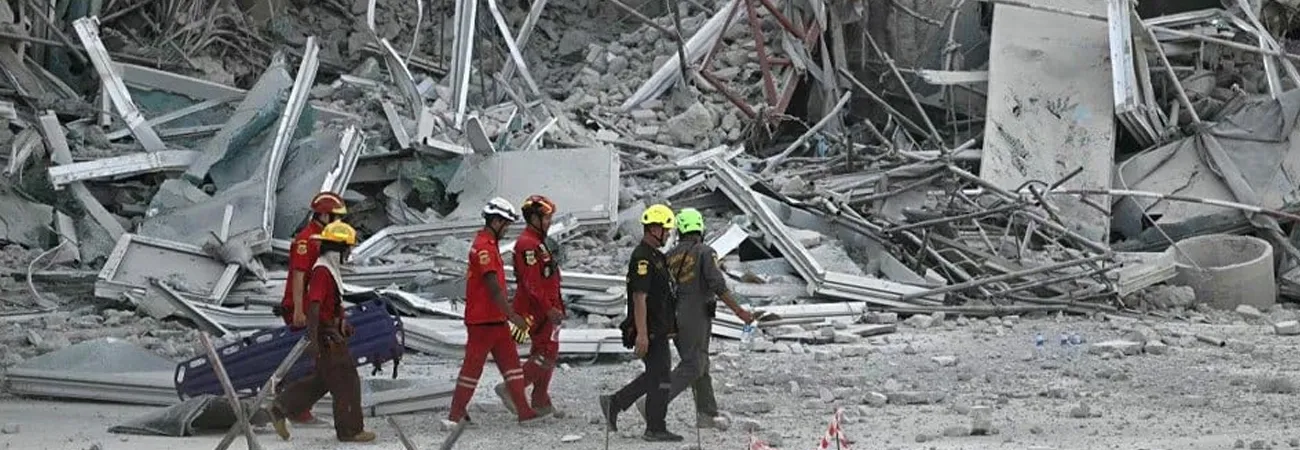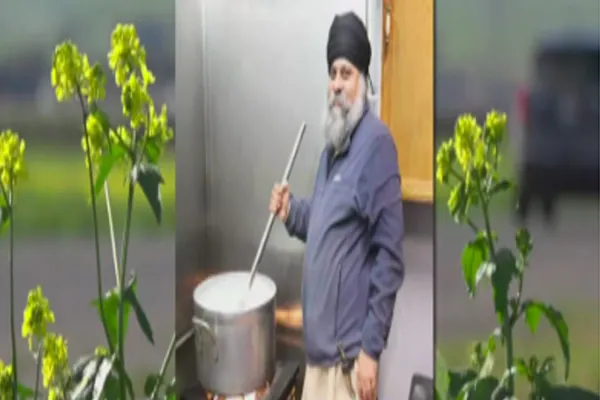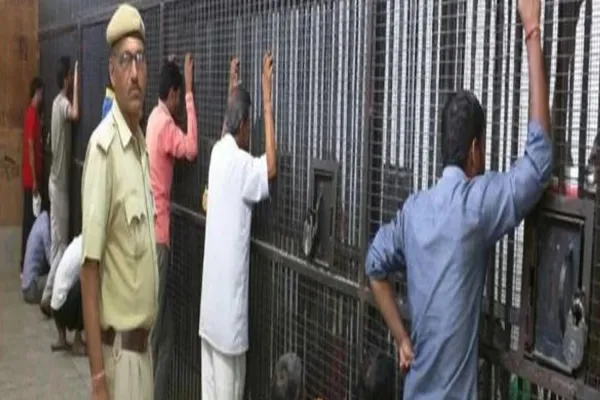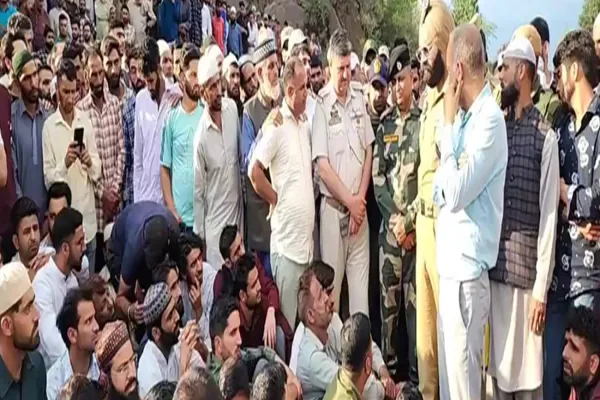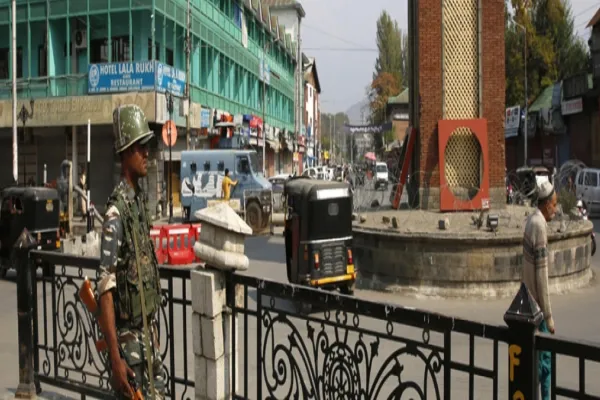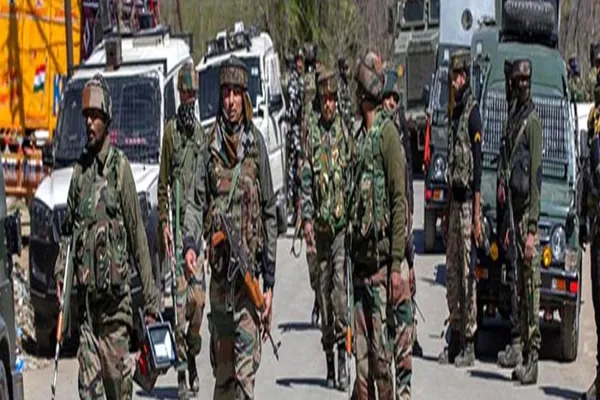i NEWS INTERNATIONAL
The death toll from a huge earthquake that hit Myanmar and Thailand passed 1000 on Saturday, as rescuers dug through the rubble of collapsed buildings in a desperate search for survivors. The shallow 7.7-magnitude quake struck northwest of the city of Sagaing in central Myanmar in the early afternoon, followed minutes later by a 6.7-magnitude aftershock.
The quake destroyed buildings, downed bridges, and buckled roads across swathes of Myanmar, with severe damage reported in the second biggest city, Mandalay. At least 694 people were killed and nearly 1,700 injured in Myanmar's Mandalay region -- believed to be the worst affected -- the ruling junta said in a statement. Around 10 more deaths have been confirmed in Bangkok. But with communications badly disrupted, the true scale of the disaster has yet to emerge from the isolated military-ruled state, and the toll is expected to rise significantly.
It was the biggest quake to hit Myanmar in over a century, according to US geologists, and the tremors were powerful enough to severely damage buildings across Bangkok, hundreds of kilometres (miles) away from the epicentre. Rescuers in the Thai capital laboured through the night searching for workers trapped when a 30-storey skyscraper under construction collapsed, reduced in seconds to a pile of rubble and twisted metal by the force of the shaking.
Bangkok governor Chadchart Sittipunt told AFP that around 10 people had been confirmed killed across the city, most in the skyscraper collapse. But up to 100 workers were still unaccounted for at the building, close to the Chatuchak weekend market that is a magnet for tourists. "We are doing our best with the resources we have because every life matters," Chadchart told reporters at the scene. "Our priority is acting as quickly as possible to save them all."
Bangkok city authorities said they will deploy more than 100 engineers to inspect buildings for safety after receiving over 2,000 reports of damage. Up to 400 people were forced to spend the night in the open air in city parks as their homes were not safe to return to, Chadchart said. Significant quakes are extremely rare in Bangkok, and Friday's tremors sent shoppers and workers rushing into the street in alarm across the city.
While there was no widespread destruction, the shaking brought some dramatic images of rooftop swimming pools sloshing their contents down the side of many of the city's towering apartment blocks and hotels. Even hospitals were evacuated, with one woman delivering her baby outdoors after being moved from a hospital building. A surgeon also continued to operate on a patient after evacuating, completing the operation outside, a spokesman told AFP.
- Rare junta plea for help -
But the worst of the damage was in Myanmar, where four years of civil war sparked by a military coup have ravaged the healthcare and emergency response systems. Junta chief Min Aung Hlaing issued an exceptionally rare appeal for international aid, indicating the severity of the calamity.
Previous military regimes have shunned foreign assistance even after major natural disasters. The country declared a state of emergency across the six worst-affected regions after the quake, and at one major hospital in the capital, Naypyidaw, medics were forced to treat the wounded in the open air.
One official described it as a "mass casualty area".
"I haven't seen (something) like this before. We are trying to handle the situation. I'm so exhausted now," a doctor told AFP. Mandalay, a city of more than 1.7 million people, appeared to have been badly hit. AFP photos showed dozens of buildings reduced to rubble.
A resident reached by phone told that a hospital and a hotel had been destroyed, and said the city was badly lacking in rescue personnel. A huge queue of buses and lorries lined up at a checkpoint to enter the capital early on Saturday. Offers of foreign assistance began coming in, with President Donald Trump on Friday pledging US help.
"It's terrible," Trump told reporters in the Oval Office about the quake when asked if he would respond to the appeal by Myanmar's military rulers. "It's a real bad one, and we will be helping. We've already spoken with the country." India, France and the European Union offered to provide assistance, while the WHO said it was mobilising to prepare trauma injury supplies.
Credit: Independent News Pakistan (INP)



